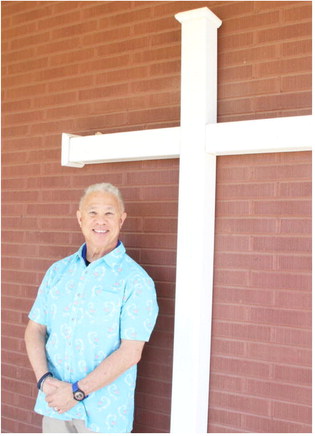Knudsen, Disciplinary Council Argue Before State Supreme Court
Even if the Montana Supreme Court decides to suspend Attorney General Austin Knudsen for 90 days, the penalty doesn’t mean he needs to lose his elected office — that’s one thing his lawyer and the lawyer for the Office of Disciplinary Counsel agreed on.
On Friday, March 28, the Montana Supreme Court, including district court judges sitting in for recused justices, heard arguments about whether Knudsen should be punished for statements he and lawyers under his supervision made that disparaged the court and for defying a court order.
At the hearing, newly sworn in Chief Justice Cory Swanson peppered both lawyers with questions, as did Justice Katherine Bidegaray and some of the five judges sitting in for recused justices.
Christian Corrigan, on behalf of Knudsen, argued the court should dismiss the complaint, a “highly irregular and unprecedented” one, and he said a more appropriate action from the court would be a “letter of caution” to his client.
“This entire process, from investigation, complaint to hearing, has been tainted by persistent due process violations,” Corrigan said.
However, Timothy Strauch, for the Office of Disciplinary Counsel, urged the court to find suspension appropriate to protect the integrity of the court and the rule of law.
“No lawyer is above this court’s constitutional regulatory authority,” Strauch said. “We do not have here a contrite or apologetic respondent, but a defiant one, to this day, who blames the court, the Commission (on Practice), myself and my predecessor.”
The lawyers argued and judges fired questions in front of a full house, including high-profile Republican legislators and members of the public. Speaker of the House Brandon Ler, former state Sen. Keith Regier, and Montana Family Foundation President Jeff Laszloffy were among those in the gallery.
Swanson, who pointed out Knudsen likely supervises more attorneys than anyone in the state, also questioned the process, and he asked the lawyers where to draw the line.
Lawyers pledge to adhere to their rules of professional conduct, and the Commission on Practice, which regulates the profession, upheld 41 separate ethics violations against the Knudsen last year.
“It would seem strange for us to just rule the attorney general is not subject to those rules in some regard,” Swanson said. “So help us figure out where that line is.”
The case is unusual. It raised questions about how the state’s top attorney, also head of an agency, should conduct himself, and it fueled a simmering dispute between the legislative and judicial branches in 2021 that has continued in Montana.
In the September 2023 complaint, the Office for Disciplinary Counsel, which handles discipline against members of the state bar, alleged Knudsen broke rules of professional conduct for lawyers - allegations one of his lawyers initially described as a “political stunt.”
A hearing took place in October 2024, and Knudsen acknowledged he might have refrained from the “sharp” language he used in his representation of the legislature in 2021.
In fiery letters from the Attorney General’s Office about the dispute, Knudsen said he saw evidence of “judicial misconduct,” “self interest,” “actual impropriety” and “bias” by the court, according to court records.
Records also show Knudsen and a lawyer under his supervision both said they would not follow orders: “The legislature does not recognize this Court’s … order as binding and will not abide it.”
Bidegaray said defying a court order goes to the heart of the matter. During the 2021 fight, the legislature sought to subpoena judicial records, the court quashed the subpoena, but Knudsen didn’t immediately return records.
Bidegaray wondered what the consequences would be if the top lawyer in Montana was allowed to disobey a court order simply because he considered it invalid.
“Does that not set the tone, or the trickle down of behavior, to the attorneys?” Bidegaray said. “ … Does that not then set some sort of standard that allows every other attorney to disregard court orders?”
Corrigan said the court was on notice that Knudsen disagreed with the order, and the situation veered into unanswered questions of law. Swanson said one problem was that the issue wasn’t dealt with in real time, such as with a motion to compel filed by the other party.
Bidegaray, though, said it might have been more prudent, when traversing new legal terrain, for the AG to have sought a “stay,” or pause, “instead of just disregarding a court order.”
In October 2024 following the hearing, the Commission on Practice unanimously recommended the Montana Supreme Court suspend Knudsen for 90 days for multiple violations of rules.
Corrigan, though, argued the Commission on Practice botched the proceedings in numerous ways, and as a result, he said the Montana Supreme Court should toss the recommendation for a suspension.
Corrigan, with the Attorney General’s Office, said Knudsen acknowledged he would have done some things differently, but he also was acting in a “narrow scenario,” where he was discharging other professional duties.
As such, Corrigan suggested the court at most issue a “letter of caution” that Knudsen walked right up to the line, and he said such an outcome would “turn down the temperature.”
Corrigan also warned the Montana Supreme Court that it shouldn’t make an example of Knudsen, and he said punishing the attorney general wouldn’t help people have faith in their branch of government.
“Obviously, disciplining the Attorney General on this record would not do anything to increase confidence in the judiciary,” Corrigan said.
If the court just tried to turn down the temperature, though, Judge Luke Berger said he wondered if the court would leave the door open for more of the same, without some strict guidance: “What is to stop it from happening in the future?”
On behalf of the Office of Disciplinary Counsel, Strauch said he understood the legislature felt strongly that the court had engaged in misconduct, and it retained the “strongest advocate” in the state in Knudsen.
“There’s no doubt in my mind that he fought vigorously for his client,” Strauch said.
But he also said Knudsen crossed the line when he attacked the integrity and qualifications of the court “completely unnecessarily,” and he requested the Montana Supreme Court draw that same line and follow the commission’s recommendation.
“Do we live in a world where these rules are just sort of a quaint reminder about concepts like respect for the rule of law and professionalism?” Strauch asked. Or is it a world where lawyers who swear to protect and defend the constitution and follow the rules are treated equally?
Strauch said he and the AG agree that the suspension would not set up a vacancy in the office, or a situation where Knudsen would need to be replaced.
According to briefings in the case, state law says the office becomes vacant if the attorney general fails to discharge duties for three consecutive months, but a suspension of even 90 days doesn’t need to run consecutively, and the court could also set a period that would ensure it wouldn’t equal three months (August 1 through Oct. 29, for example).
Also, the attorney general must be a lawyer in “good standing,” but a court briefing from Knudsen’s team said that is a qualification for running for office, not for continuing tenure. It also said the state Constitution allows for the removal of a judge, but not for an officer of another branch, and Montanans “overwhelmingly reelected” Knudsen while the case was pending.
“Any other act by one branch that purports to remove a constitutional officer of another branch would exceed constitutional bounds and raise grave constitutional concerns,” said the court filing.
Strauch said a suspension would preserve the rule of law.
Judge Gregory Bonilla, however, said the integrity of the judicial process is important, and key in the case. Bonilla said candidly, if he had worked with Knudsen, he would have cautioned him over his actions, but he said that’s just one question.
“There’s conduct,” Bonilla said. “And then there’s, ‘Did we do it right?’” In other words, he said, he might be certain someone engaged in criminal conduct, but if the search and seizure process was compromised, it doesn’t matter.
“This is what the attorney general is essentially saying, right?” Bonilla said.
Strauch, though, said both jurisprudence and due process are “sacrosanct,” and both were followed.
Swanson, who took office in January, told Strauch he didn’t like the statements that came from the attorney general and his team, but he didn’t like the way the process unfolded either.
“This thing is a mess from start to finish,” Swanson said. “I agree with you. A whole bunch of their statements and conduct on the front end look bad. But the proceeding, ruling on things without him having a chance to respond, and issuing this immediately before the election? … That looks political.”
Strauch agreed the timing could appear political, but he said the timing was due in a large part to the request from the attorney general’s team to delay the proceeding.
Strauch agreed the court had a range of options, from remanding the case for more information to full suspension, but Corrigan said a remand, or “third bite at the apple,” would not be fair to Knudsen.
“It would be inequitable for the Attorney General to have to go through this process again,” Corrigan said.

